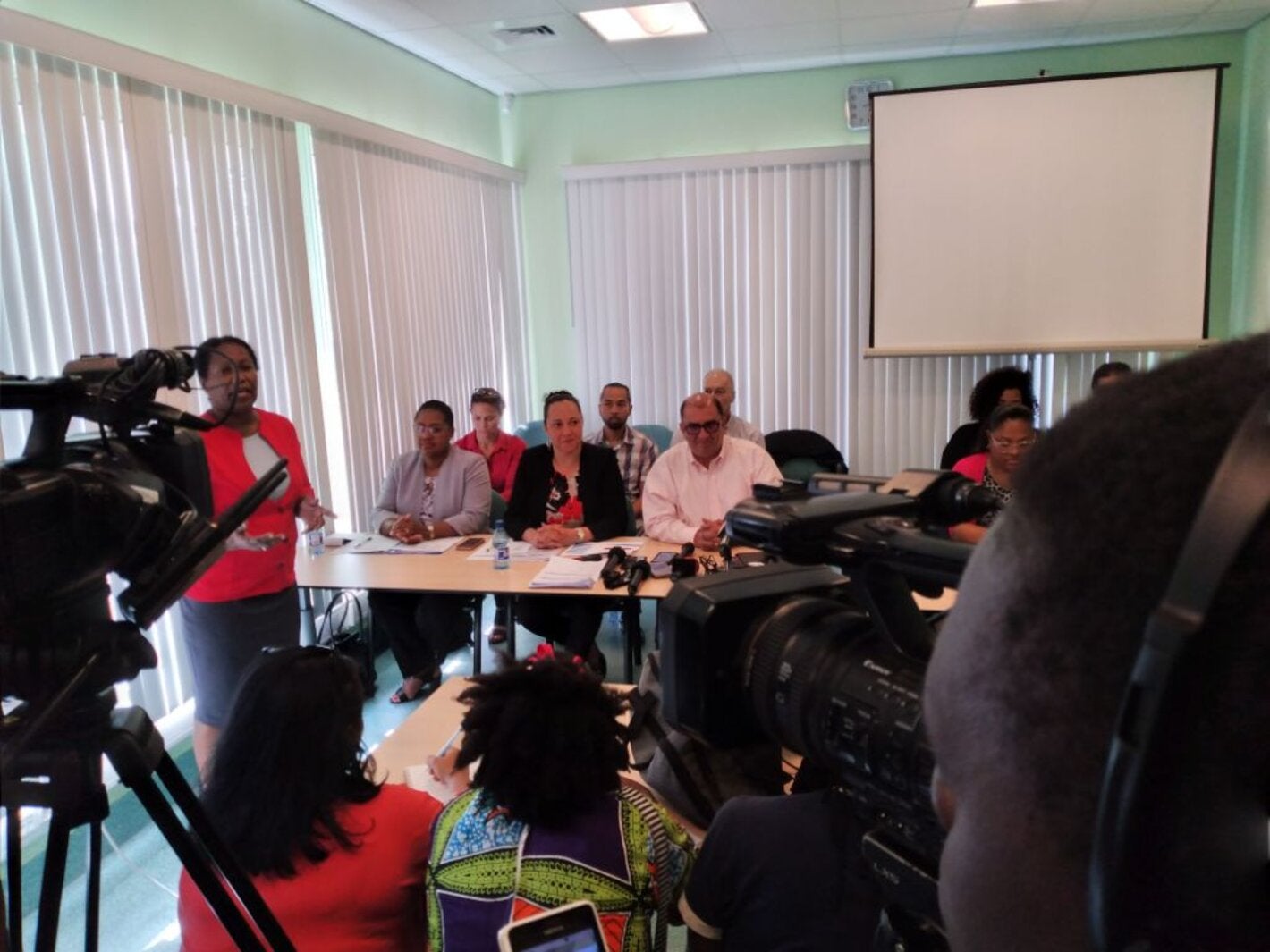
PAHO/WHO for Suriname, 11 February 2020 - At this moment 20 countries outside of China have reported cases of the novel coronavirus (2019-nCoV). Because of the increasing number of cases and the risk of international spread, the Emergency Committee of the WHO International Health Regulations has declared this virus on the 30th of January 2020, as a public health emergency of international concern. Now Suriname is taking preparedness measures such as entry screenings, use of record locators to identify persons with travel history from China, extensive step-by-step plan to identify and manage suspected cases, establishment of an isolation room, establishment of a rapid response coronavirus team and spreading of information to the public through traditional and social media.
In a press conference on the 31st of January 2019, the ministry of Health together with PAHO informed the Surinamese population about the virus. Dr. Lewis-Bell emphasized that China has been very cooperative in providing information in a timely manner, so that the rest of the world can become aware of what is happening and put preparedness measurements in place.
Cleopatra Jessurun director of the health ministry says that the ministry is alert since the outbreak from Wuhan in China on January 17 was announced through official channels and that it is in constant contact with foreign partners such as CARICOM and PAHO/WHO about the novel coronavirus. According to her coronaviruses are not new.
"They have always been there. Only a few things are unknown and that causes fear worldwide and we understand that. For the past 18 years, we have seen that they actually only occur in animals, but now they are starting to behave in other ways and transfer to humans. The Middle East Respiratory Syndrome (MERS Coronavirus) had spread to 29 countries and had more than 8,000 cases with a death rate of 36%. The Severe Acute Respiratory Syndrome (SARS) was also a coronavirus that spread to 27 countries with high levels of infections and 10% mortality. The Ebola virus had a 95% mortality rate. So far, the death rate of the 2019 novel coronavirus is low, with a number of infections of more than 9,000 and 213 deaths is still between 2 and 4%. ”
According to Dr. Lewis-Bell the increased number of cases is nothing to be alarmed about. “It is what can be expected. It is a new strain of the virus that the population has never been exposed to. Once the new virus enters a susceptible population, large numbers of persons will become affected. The important thing is for countries to be aware and put preparedness measures in place including risk communication and having health facilities prepared to manage suspected or confirmed cases”.
As the virus also occurs in other countries as a result of traveling, Suriname has taken preventive measures as much as possible in accordance with guidelines from the WHO and PAHO to prevent the virus from entering. “China is doing exit screening,” says Jessurun. “We do an entry screening. We have no direct flights. The flights come from other countries. We pay attention to the symptoms. If people show symptoms or not. The WHO has pointed out that if countries do entry screening as a measurement, we must be careful not to count on this only because people can also enter symptom- free. The incubation period of the virus is 14 days. When someone enters the country, he must complete a form at the airport, because he is already detected via an international system that he comes from a risk area. A record locator is also filled in to be able to trace where those people in Suriname are. They are called by the epidemiology department who visits them to see if they are sick. If one becomes sick, he has to call the hotline 178 or go to a doctor. An extensive step-by-step plan with standard operating procedures has been developed and an isolation room has been identified to isolate people and where the treatment can be continued,” says Jessurun. According to her, a quick response coronavirus team is in place and the Surinamese community is also informed through traditional and social media as much as possible so that they can take preventative measures such as washing hands frequently, coughing in disposable wipes or elbow.
PAHO continues support
Dr. Lewis-Bell feels confident that the ministry of health has the capacity to put control measurements in place and already started to implement preparedness activities to ensure that should the virus be detected the country has the capacity to be able to diagnose and manage the cases. According to her PAHO will continue to support the Ministry of Health with technical advice in terms of sharing technical documents, the development or printing of educational material to enhance public awareness and help with risk communications, enhancing laboratory capacity for diagnosis and ensuring that health care workers will be adequately prepared to manage if there should be a case.



